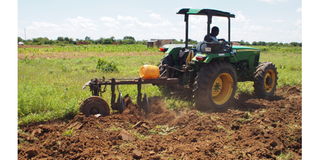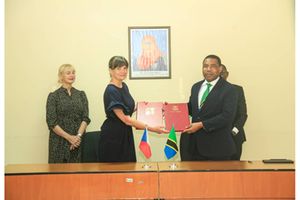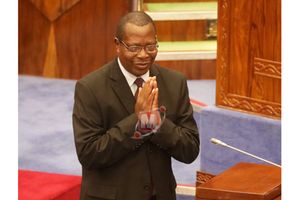Prime
Tanzania develops ride-hailing-style system for agricultural support

What you need to know:
- The system, which will operate similarly to ride-hailing apps such as Uber, Bolt, and Little-Ride, is part of efforts to address the current shortage of agricultural experts across the country.
Dar es Salaam. The Ministry of Agriculture is developing a digital platform to help farmers locate extension officers in real time, focused on improving access to agricultural services and enhancing productivity nationwide.
The system, which will operate similarly to ride-hailing apps such as Uber, Bolt, and Little-Ride, is part of efforts to address the current shortage of agricultural experts across the country.
Deputy Minister for Agriculture, Mr David Silinde, revealed the initiative in Parliament on Wednesday, May 14, 2025, during the Questions and Answers session.
Responding to a supplementary question from Iramba East MP (CCM), Mr Francis Mtinga, Mr Silinde said Tanzania currently has 6,748 extension officers—just 41.43 percent of the required number.
Mr Mtinga, Iramba East MP (CCM), asked whether the government would prioritise deploying extension officers to every village, especially in light of ongoing subsidised fertiliser and seed distribution.
Agreeing with the lawmaker, Mr Silinde said recruitment is guided by demand and available budget allocations.
“One key step the Ministry is taking is developing a digital system that will allow citizens to identify the location of an extension officer and request their services, similar to ride-hailing platforms,” he said.
He noted that the innovation comes as the government continues to fill staffing gaps, recruiting officers based on funding and regional needs.
In his principal question, Mr Mtinga had asked whether the government recognises the need to deploy extension officers to every village, given that agriculture remains the country’s largest employer.
In response, Mr Silinde said the government aims to station extension officers in all 12,333 villages and 3,956 wards to boost productivity.
He mentioned that 941 extension officers had been recruited between 2021 and 2024.
Additionally, he said the Ministry, in collaboration with the private sector, is implementing the Business and Technical Training (BTT) programme, which provides temporary jobs to agricultural college graduates.
“As of March 2025, 1,237 graduates had been engaged—737 in the cotton sector and 500 in cashew production,” said Mr Silinde.
He said the government is also enhancing digital systems and providing extension officers with tools to serve more farmers efficiently.
Ms Esther Midimu, Special Seats MP (CCM), raised concerns about the severe shortage of extension officers in Simiyu Region.
In response, Mr Silinde said the government is addressing the issue nationwide, with a strategic focus on priority crops.
“That is why, as I mentioned earlier, over 700 extension officers have been deployed to cotton-growing regions like Simiyu, which contributes more than 60 percent of national production,” he said.
Ms Angelina Malembeka, Special Seats MP (CCM), asked about the provision of transport for extension officers.
In response, Mr Silinde said: “One of the major achievements of the Sixth Phase Government is the distribution of motorbikes to all extension officers across the country, ensuring they are well-equipped to serve farmers more effectively.”




